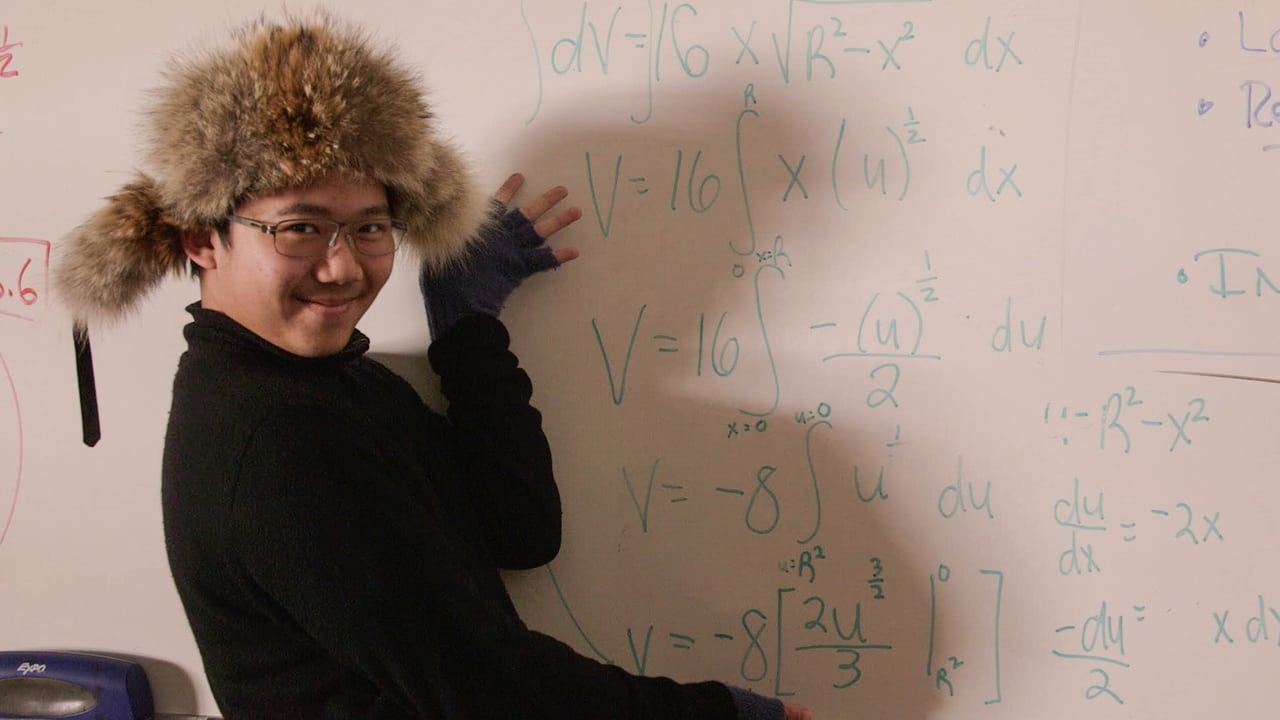
AP Guzzling Grade Grubbers
Try Harder! is one of the documentaries in competition at Sundance this year. While it's certainly not the splashiest or most immediately relevant (it has been scooped by Homeroom, which also features high school kids, but focuses on hot-button 2020 pandemic issues), if you're someone to whom college admissions meant anything at all, it has the sharpest blade with which to stab you in the gut.
Try Harder! follows the seniors at San Francisco's Lowell High School through a full school year. Lowell, which has a majority Asian-American student population, is a mecca for high-achieving students who feel pressure from their parents (and frequently from themselves) to earn a coveted spot in a top-ranked college, despite the fact that an alarming number of admissions counsels view the students as stereotypical Asian student machines who pump out test answers but don't contribute to the personality of a school (a fun way to say they'd rather have more white people).
Rather than foregrounding the inherent racism and unfair opaqueness of the system, Try Harder! explores its topic at the human level: its influence over the lives of a handful of students who are trapped in its web. If there's one thing it accomplishes best, it's the way it draws each student as a fully fleshed-out personality, even if they haven't quite figured out who they themselves are just yet. This is perhaps best evinced in the segments featuring Alvan, the class clown who is a clever student, an emotionally honest friend, a doting son, and a terrific dancer, yet flattens out completely when put on paper and submitted to a dozen colleges who have already put Lowell students on the backburner.
There is no student here who won't unfold themselves to your heart, from the biracial Rachael deftly navigating the challenges of identity to charming Ian guiding us through the highs and lows of immense expectation to featured junior Shea enduring grave misfortunes to remain at Lowell and achieve his fullest potential. Director Debbie Lum also makes the wise decision to interview the teachers and the parents, reminding the viewer that this is not a "kids vs adults" conflict at its core, but of human beings fighting against the faceless bureaucracy that determines their future.
Try Harder! has such a strong crop of subjects that it could have just coasted on their personalities and vivaciousness, but thankfully it presents its story with a strong cinematic sense as well. The editor is always drawing little visual cues out of the presumably hundreds of hours of footage to cheekily underscore moments with a keen sense of irony. These moments shine without drawing too much attention to themselves, even if some of the more straightforward juxtapositions (cutting from a sad scene to rain falling on campus, for one) are a little on the cheesy side.
Here comes the part where I struggle most with reviewing documentaries. Try Harder! is a film that doesn't have any significant flaws, so if that were the only metric I used to assign a score, it would get the highest marks. But as much as film critics pretend to be objective, it's literally impossible to do that. Cinema is a subjective medium. And this particular subject had a very nice time watching this movie, but doesn't tend to give perfect marks to a movie unless it goes above and beyond to really bowl the audience over in some way.
Try Harder! isn't doing this, and that was never its mission statement. It's a hang-out movie with a message propelling the overall structure. But for a viewer who already has a strong emotional and political position on the gnashing machinery of college admissions, it won't do much to provoke you. It's a strong message that is made very clear throughout the film, but the tone is soft.
Try Harder! wants you to be bummed out only when its characters are feeling low, which it accomplishes, but it also wants you to celebrate their college successes and doesn't forcefully examine how that plays into the system that's causing the problems in the first place. It doesn't have the teeth to bite as hard as I personally would want it to. But if you don't want it to do that, it's an unimpeachable success. It's a breezy delight to experience the exhilarating highs and perilous lows of a high school existence from such a safe distance, and I highly recommend giving it a shot.
Brennan Klein is a millennial who knows way more about 80's slasher movies than he has any right to. You can find his other reviews on his blog Popcorn Culture. Follow him on Twitter, if you feel like it.
Try Harder! follows the seniors at San Francisco's Lowell High School through a full school year. Lowell, which has a majority Asian-American student population, is a mecca for high-achieving students who feel pressure from their parents (and frequently from themselves) to earn a coveted spot in a top-ranked college, despite the fact that an alarming number of admissions counsels view the students as stereotypical Asian student machines who pump out test answers but don't contribute to the personality of a school (a fun way to say they'd rather have more white people).
Rather than foregrounding the inherent racism and unfair opaqueness of the system, Try Harder! explores its topic at the human level: its influence over the lives of a handful of students who are trapped in its web. If there's one thing it accomplishes best, it's the way it draws each student as a fully fleshed-out personality, even if they haven't quite figured out who they themselves are just yet. This is perhaps best evinced in the segments featuring Alvan, the class clown who is a clever student, an emotionally honest friend, a doting son, and a terrific dancer, yet flattens out completely when put on paper and submitted to a dozen colleges who have already put Lowell students on the backburner.
There is no student here who won't unfold themselves to your heart, from the biracial Rachael deftly navigating the challenges of identity to charming Ian guiding us through the highs and lows of immense expectation to featured junior Shea enduring grave misfortunes to remain at Lowell and achieve his fullest potential. Director Debbie Lum also makes the wise decision to interview the teachers and the parents, reminding the viewer that this is not a "kids vs adults" conflict at its core, but of human beings fighting against the faceless bureaucracy that determines their future.
Try Harder! has such a strong crop of subjects that it could have just coasted on their personalities and vivaciousness, but thankfully it presents its story with a strong cinematic sense as well. The editor is always drawing little visual cues out of the presumably hundreds of hours of footage to cheekily underscore moments with a keen sense of irony. These moments shine without drawing too much attention to themselves, even if some of the more straightforward juxtapositions (cutting from a sad scene to rain falling on campus, for one) are a little on the cheesy side.
Here comes the part where I struggle most with reviewing documentaries. Try Harder! is a film that doesn't have any significant flaws, so if that were the only metric I used to assign a score, it would get the highest marks. But as much as film critics pretend to be objective, it's literally impossible to do that. Cinema is a subjective medium. And this particular subject had a very nice time watching this movie, but doesn't tend to give perfect marks to a movie unless it goes above and beyond to really bowl the audience over in some way.
Try Harder! isn't doing this, and that was never its mission statement. It's a hang-out movie with a message propelling the overall structure. But for a viewer who already has a strong emotional and political position on the gnashing machinery of college admissions, it won't do much to provoke you. It's a strong message that is made very clear throughout the film, but the tone is soft.
Try Harder! wants you to be bummed out only when its characters are feeling low, which it accomplishes, but it also wants you to celebrate their college successes and doesn't forcefully examine how that plays into the system that's causing the problems in the first place. It doesn't have the teeth to bite as hard as I personally would want it to. But if you don't want it to do that, it's an unimpeachable success. It's a breezy delight to experience the exhilarating highs and perilous lows of a high school existence from such a safe distance, and I highly recommend giving it a shot.
Brennan Klein is a millennial who knows way more about 80's slasher movies than he has any right to. You can find his other reviews on his blog Popcorn Culture. Follow him on Twitter, if you feel like it.
Categories: documentaries






